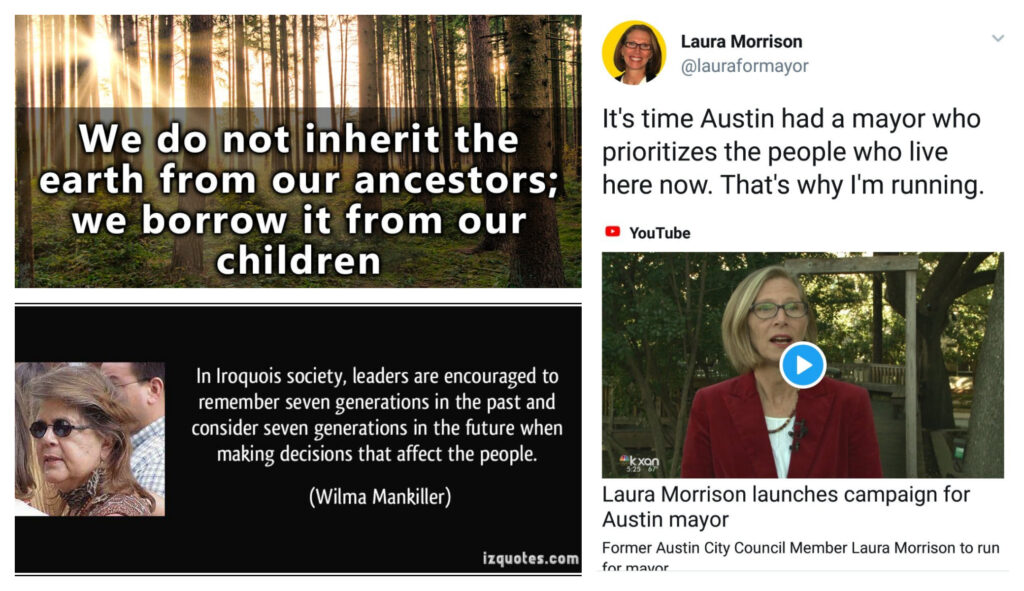Economic development incentive deals — tax breaks to companies for bringing jobs to a city — have had a pretty bad run of news in Austin and beyond. Amazon’s HQ2 headquarters search earned a mile of negative attention for every inch of excitement even before they gave up on a deal with New York.
In Austin, economic development deals have been controversial for a while.
- Before he was a Council Member, Greg Casar fought the JW Marriott for nonperformance on an economic development deal.
- In her 2014 campaign, Council Member Kathie Tovo heavily featured opposition to state subsidies for building a Formula 1 race track in Austin.
- Expansion of the convention center, once a staple of economic development conversations, has run into opposition and delays (from myself at times).
- Proponents of building an MLS soccer stadium on city-owned land didn’t bother making an economic development argument.
Two things Council got right during its MLS-at-McKalla deliberation: yes-votes were clear they were supporting it as an amenity (not as economic development) and there was consensus that the City should continue to own the land.
— Julio Gonzalez Altamirano (@juliogatx) August 15, 2018
The arguments against economic development fall into two major categories. The first is simple opposition to the development itself, regardless of tax breaks or special deals, as is the case for Herman’s comments on Google’s new downtown Austin tower below. While politicians don’t speak like Herman, I suspect a few share his outlook, no matter how they couch their opposition.

These arguments don’t appeal to me as I prefer to welcome newcomers. But there is another strand of arguments that’s more compelling: those based on fairness. In these arguments, we should welcome arrivals like Google, Oracle, and Amazon, who purchase or build office space and pay the same taxes anybody else would but stop giving tax breaks like those Williamson County and Texas are giving to Apple. A well-run city should be proud of the services it offers for taxes and shouldn’t look like a Joseph A Bank sale:

But extractions can work both ways. For every company seeking tax breaks, there’s a city trading zoning permission for “community benefits” — essentially, extra taxes on top of the property taxes everybody else pays. (Community benefits aren’t framed as taxes, but they are things that cost money that would typically have been done out of a city’s budget, like funding or provisioning low-income housing or parks or street improvements.) In Silicon Valley, small cities like Menlo Park, Mountain View, and Redwood City that host global companies like Facebook, Google, and Oracle are more concerned with raising housing prices than integrating new residents and office workers. Facebook may seem above the law but they’re common beggars in front of the zoning laws of the Silicon Valley.
Austin doesn’t have the restrictions Silicon Valley does but the attitude behind it is still very prevalent.

In cities across the country, taxation is neither fair nor predictable. Companies extract tax cuts from cities when they move there; cities extract “community benefits” in exchange for zoning permissions. The result is a hodgepodge of slow and difficult negotiations, with people who don’t play the game getting screwed. Unwinding this knot could not only provide a different way to provide economic benefits but it could do so in a way that creates more fairness all around:
1 Be a place people want to go
The greatest advantage an economic development officer has when attempting to seal a deal is the knowledge that the company wants to be there in the first place. For most companies, a well-educated work force is the number one driver, along with the conditions that will attract even more employees: low rents, good schools, attractive parks, convenient commutes, etc. Some companies may chase low taxes but even more will seek good value for the taxes that they pay. Of course, “be popular” isn’t super useful advice. But this can at least serve as a wake-up call: if your city finds itself needing to dangle special incentives in front of companies in order to get them to locate in your city, your basic value proposition isn’t working and you need to pay more attention to improving that than on dealmaking.
2 Allow plenty of room for growth
When Google, Oracle, or Amazon decided to build out offices in Austin, part of the reason Austin didn’t need to negotiate agreement with tax breaks is because our zoning rules already allowed them to build office space to suit. The fact that Austin eschewed the community benefit game means that it was easier for Austin to avoid the tax break game.
3 Work jointly on planning goals
25,000 new jobs can be a shock to any city’s plans. Transit, parks, sidewalks, and schools all may need to be adjusted to meet new demand. Its not unreasonable to imagine a company may want to sit down with planners and make sure there’s a plan to handle new demand. It may even be reasonable to imagine a deal which, instead of promising tax breaks in exchange for jobs targets, promises planning performance (e.g. “10 transit vehicles per hour on a route near the offices”) in exchange for jobs targets — especially if the planning goals are the ones a city should want anyway.
4 Manage your municipal balance sheet wisely
This is perhaps the most abstract and difficult-to-grasp points and I’m fully prepared for the possibility that I’m going to fail to do it justice. One of the most influential voices in the urbanist world of the last decade has been that of Strong Towns, including their message for cities to think closely about their balance sheet. When a company chooses to invest in a city, they are buying into a city’s management of its finances. Knowing that a city is managing its finances well for the long-term can give companies piece of mind about investing there.
For growing cities, this can take the form of using a critical eye toward how that growth is shaped. Let’s look at two ways to add 10,000 new residents: urban infill projects like the densification of West Campus, or greenfield developments like the construction of a new neighborhood on the city’s periphery. The West Campus project costs more money upfront as the city spent on tearing up the streets to replace the neighborhood’s aging sewer lines with newer, larger versions to handle the new capacity. Infrastructure for new neighborhoods, on the other hand, is typically gifted to the city by the neighborhood’s developer. But cities last centuries, far longer than economic development deals. Fifty years from now, the city that built West Campus up has fewer miles of roads and sewers to maintain and replace for the same tax base than the city that built the periphery out, allowing it to provide more services for the same taxes.
